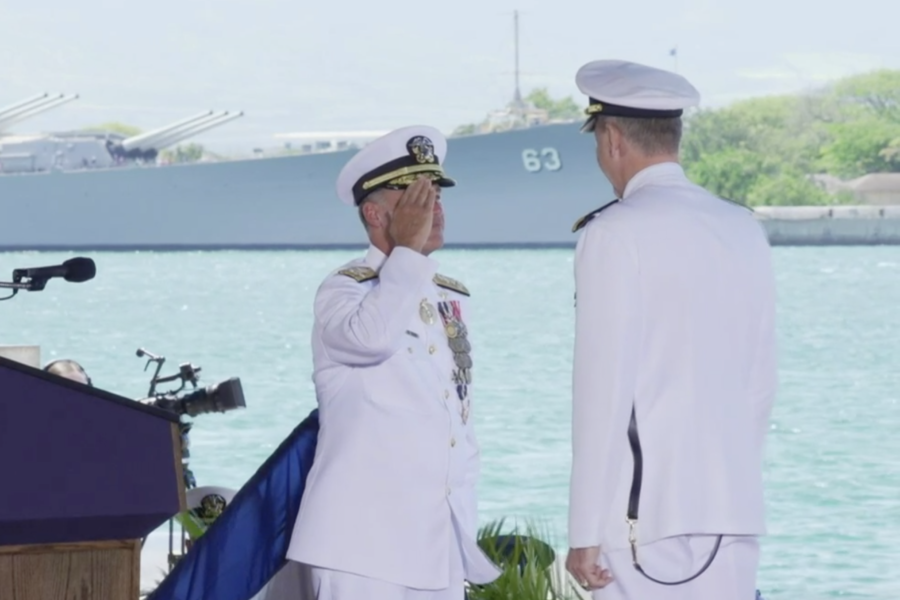Adm. John C. Aquilino assumed command of U.S. Indo-Pacific Command from Adm. Philip S. Davidson during an April 30 ceremony at Joint Base Pearl Harbor-Hickam, Hawaii.
Aquilino, who relinquished command of U.S. Pacific Fleet earlier the same day, takes over as the Defense Department shifts its focus to great power competition after decades of counterterrorism operations. He now leads 380,000 Soldiers, Sailors, Marines, Airmen, Coast Guardsmen, and DOD civilians in a combatant command that spans 36 nations and 14 time zones and includes 52 percent of the world’s population.
Davidson retired after four decades in uniform, the last three at the helm of INDOPACOM, and was the U.S. Navy’s longest serving surface warfare officer, said Defense Secretary Lloyd J. Austin III during the ceremony.
“Under [Davidson’s] leadership, this command upheld the lawful use of the sea for all countries by executing more than 40 Freedom of Navigation Operations. This command conducted more than 20 major bilateral and multilateral joint exercises with our allies and partners. And this command did not flinch amid the huge operational challenges of the pandemic…” Austin said. He added, “You’ve always believed in something bigger than yourself, and you’ve put your life on the line to protect the country you love. And you’re leaving a legacy to be proud of.”
Austin also praised Aquilino, calling him “another exceptional leader” who has “amassed a strong record of excellence and courage.” A graduate of the Navy’s Top Gun school, Aquilino has flown the F-14 Tomcat, three variants of the F-18 Hornet, the F-16, and more.
“He’s commanded a squadron, a wing, and a strike group, which means he knows a thing or two about leading American forces into combat. And, as the commander of the U.S. Pacific Fleet, he knows what it takes to lead in this theater, to reinforce our integrated deterrence in this pivotal period. Your new commander knows the stakes, he knows the people, and he knows the challenges. Admiral Aquilino, you are the right leader at the right time.”
Austin acknowledged he spent most of his career “executing the last of old wars” but said today’s challenges require news ways of thinking. “We need to understand faster, decide faster, and act faster.” This will require “the right mix of technology, operational concepts, and capabilities—all woven together in a networked way that is so credible, flexible, and formidable that it will give any adversary pause.”
Austin called U.S. allies, many of whom were in attendance at the ceremony, “force multipliers,” and Aquilino vowed to continue strengthening relationships with allies and partners across the globe.
“We are committed to providing the deterrence needed to prevent great power conflict. And should it be directed, we’re committed to be able to fight tonight and win,” said Aquilino. “We will compete to achieve our national interests. We will cooperate where we can, and we will confront where we must in order to maintain a free and open Indo-Pacific.”
